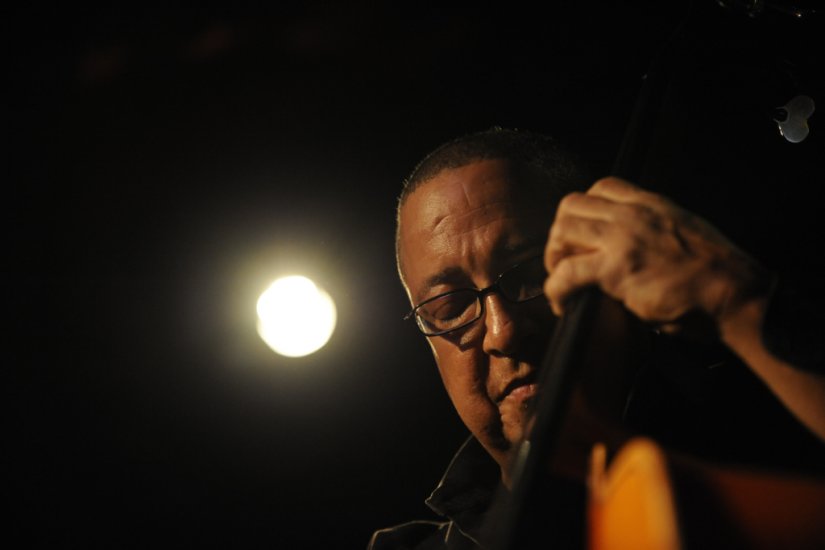Chicago jazz is music to Polish ears
By Alison Cuddy

Chicago jazz is music to Polish ears
By Alison Cuddy
Last week, as many of you tucked into your annual helping of turkey ‘n sides, I, along with some residents of Poznan, Poland, was digging into very different fare: Chicago jazz.
For the past seven years, this small, picturesque city in western Poland has hosted Made in Chicago, a four-day festival exclusively dedicated to our city’s avant garde and traditional jazz scene. The gathering is the work of Wojciech Juszczak, of the arts organization Estrada Poznanska, in collaboration with Lauren Deutsch of the Jazz Institute of Chicago.
This year’s program included a number of Chicago’s younger improvising stars, including cellist Tomeka Reid, saxophonist Dave Rempis (who, along with bass player Joshua Abrams, form the ARR Trio) and vibraphonist Jason Adaciewiz (who brought his Sun Rooms trio and played with Mike Reed and others in Living by Lanterns). They were joined by stalwarts of Chicago’s scene, including Ken Chaney, who recently reprised his ’70s jazz-soul outfit The Awakening.
Juszczak discovered the “Chicago sound” when Poland was still behind the Iron Curtain. He said it was “incredibly expensive” to get jazz records from the United States, but “somebody somehow got one LP and we exchanged the music on tape.” For some Polish music lovers, jazz, especially free jazz, represented freedom.
Despite the logistical and political obstacles Juszczak faced, Deutsch said her collaborator now knows the history of Chicago’s jazz scene far better than many locals, including the smallest details — like where Von Freeman went to high school.
Juszczak said he was drawn to Chicago’s jazz scene in particular because of the way its music is “rooted in community,” in which experimental and more mainstream musicians don’t exist apart from one another, but exchange ideas and play together in one scene. He contrasted our city’s scene with that of New York’s, which he finds more “snobby.”
In New York, it’s “more about money and careers,” Juszczak said.
Though a European music festival dedicated to the players of one jazz community may seem unorthodox, even narrow-minded, Juszczak said the creativity and depth of Chicago’s musicians keeps it fresh. And, audiences seem to welcome the experience. Thousands of people come every year, from within Poland and other parts of Europe. Perhaps that’s because the festival offers the opportunity for annual discovery akin to Juszczak’s original forays into Chicago jazz. Every year he and Deutsch try to present “non-obvious” jazz stars and new ensembles, so that the audiences, right alongside the festival’s programmers, experience new groups and new music for the first time. One highlight for Juszczak was the 2006 premiere of flutist Nicole Mitchell’s Harambee Suite. Deutstch added that the festival has helped launch the careers of some of Chicago’s musicians, by allowing them to play in front of a discerning international crowd.
The festival ran Thursday through Sunday, and this year included opportunities for Polish and Chicago musicians to workshop techniques and ideas together. Don’t tell, but a few New York musicians (all long-time Chicago collaborators) snuck into the mix, too. The concerts culminated with Blowin’ in from Chicago, an all-star “re-imagining” of the famous 1957 Blue Note recording with the then very young Chicago tenor saxophonists John Gilmore and Clifford Jordan (Edward Wilkerson Jr. and Ari Brown did the honors in Poznan).
But no rest for the European arts presenter: Juszczak is already off to presenting his next event, a festival of baroque music. In fact, when I asked him to name a favourite musician, he opted for J. S. Bach over and above his beloved Chicago jazz cats!
To find out more about this year’s festival, tune into Worldview at noon on Monday; I’ll be joining Jerome live to re-cap the event.
